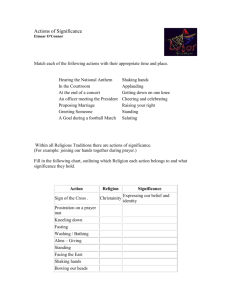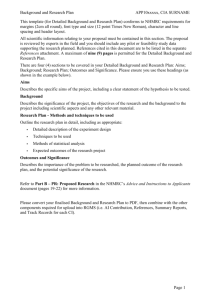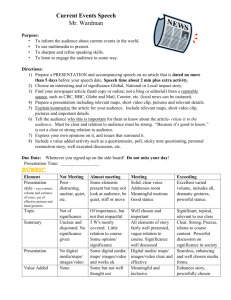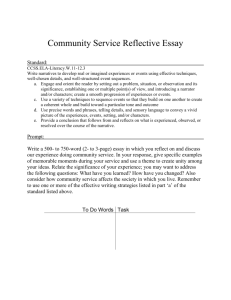Chapter 7
advertisement
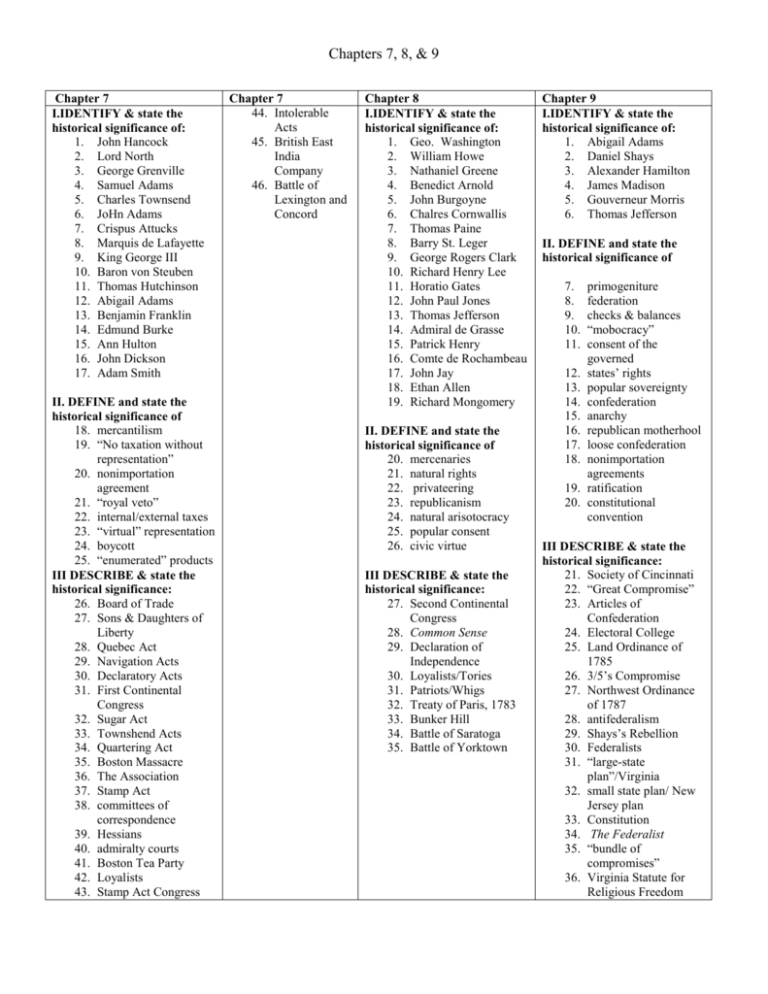
Chapters 7, 8, & 9 Chapter 7 I.IDENTIFY & state the historical significance of: 1. John Hancock 2. Lord North 3. George Grenville 4. Samuel Adams 5. Charles Townsend 6. JoHn Adams 7. Crispus Attucks 8. Marquis de Lafayette 9. King George III 10. Baron von Steuben 11. Thomas Hutchinson 12. Abigail Adams 13. Benjamin Franklin 14. Edmund Burke 15. Ann Hulton 16. John Dickson 17. Adam Smith II. DEFINE and state the historical significance of 18. mercantilism 19. “No taxation without representation” 20. nonimportation agreement 21. “royal veto” 22. internal/external taxes 23. “virtual” representation 24. boycott 25. “enumerated” products III DESCRIBE & state the historical significance: 26. Board of Trade 27. Sons & Daughters of Liberty 28. Quebec Act 29. Navigation Acts 30. Declaratory Acts 31. First Continental Congress 32. Sugar Act 33. Townshend Acts 34. Quartering Act 35. Boston Massacre 36. The Association 37. Stamp Act 38. committees of correspondence 39. Hessians 40. admiralty courts 41. Boston Tea Party 42. Loyalists 43. Stamp Act Congress Chapter 7 44. Intolerable Acts 45. British East India Company 46. Battle of Lexington and Concord Chapter 8 I.IDENTIFY & state the historical significance of: 1. Geo. Washington 2. William Howe 3. Nathaniel Greene 4. Benedict Arnold 5. John Burgoyne 6. Chalres Cornwallis 7. Thomas Paine 8. Barry St. Leger 9. George Rogers Clark 10. Richard Henry Lee 11. Horatio Gates 12. John Paul Jones 13. Thomas Jefferson 14. Admiral de Grasse 15. Patrick Henry 16. Comte de Rochambeau 17. John Jay 18. Ethan Allen 19. Richard Mongomery II. DEFINE and state the historical significance of 20. mercenaries 21. natural rights 22. privateering 23. republicanism 24. natural arisotocracy 25. popular consent 26. civic virtue III DESCRIBE & state the historical significance: 27. Second Continental Congress 28. Common Sense 29. Declaration of Independence 30. Loyalists/Tories 31. Patriots/Whigs 32. Treaty of Paris, 1783 33. Bunker Hill 34. Battle of Saratoga 35. Battle of Yorktown Chapter 9 I.IDENTIFY & state the historical significance of: 1. Abigail Adams 2. Daniel Shays 3. Alexander Hamilton 4. James Madison 5. Gouverneur Morris 6. Thomas Jefferson II. DEFINE and state the historical significance of 7. 8. 9. 10. 11. 12. 13. 14. 15. 16. 17. 18. 19. 20. primogeniture federation checks & balances “mobocracy” consent of the governed states’ rights popular sovereignty confederation anarchy republican motherhool loose confederation nonimportation agreements ratification constitutional convention III DESCRIBE & state the historical significance: 21. Society of Cincinnati 22. “Great Compromise” 23. Articles of Confederation 24. Electoral College 25. Land Ordinance of 1785 26. 3/5’s Compromise 27. Northwest Ordinance of 1787 28. antifederalism 29. Shays’s Rebellion 30. Federalists 31. “large-state plan”/Virginia 32. small state plan/ New Jersey plan 33. Constitution 34. The Federalist 35. “bundle of compromises” 36. Virginia Statute for Religious Freedom Chapters 7, 8, & 9 37. Continental Congress


